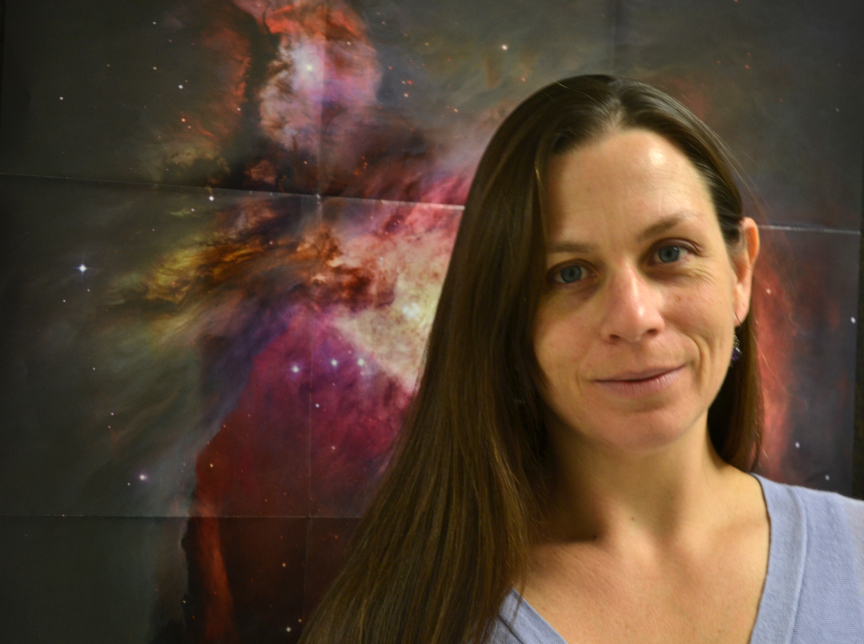$3 million gift from estate of 1936 physics doctoral student funds position being filled by galaxy formation expert
NEW BRUNSWICK, N.J. – The Rutgers University Board of Governors today established the George A. and Margaret M. Downsbrough Chair in Astrophysics. The board also appointed Rachel Somerville as first holder of the endowed chair.
Somerville joined Rutgers in July as professor in the Department of Physics and Astronomy in the School of Arts and Sciences.

“Somerville has compiled a brilliant record of research on the formation and evolution of galaxies,” said Rutgers President Richard L. McCormick. “Her professional expertise and track record of mentoring graduate students and post-doctoral researchers will boost Rutgers’ reputation as a leader in the astronomical sciences.”
The endowed chair is funded by a $3 million gift from the estate of George Downsbrough, who in 1936 was the second Rutgers student to earn a doctoral degree in physics.
After World War II, Downsbrough joined the Boonton Radio Corporation, an electronic instrument company, and eventually became the company’s president and general manager. The company was acquired in 1959 by Hewlett-Packard. He later held executive positions with American Standard and Singer.
Creating endowed chairs is a priority of the university’s $1 billion fundraising campaign, “Our Rutgers, Our Future: A Campaign for Excellence.”
Before joining Rutgers, Somerville held a joint appointment as associate research professor at Johns Hopkins University and associate astronomer with tenure at the Space Telescope Science Institute (STScI). STScI manages selection, planning and scheduling of scientific activities for the Hubble Space Telescope.
“The main thing that attracted me to Rutgers was the people in the astronomy group,” said Somerville. “They are absolutely first-rate.”
She explained that as a theorist, her fundamental requirement is access to people who do observational astronomy, providing discoveries and findings that refine her models. With the endowed chair’s support, she hopes to strengthen the astronomy program’s focus on galaxy formation and cosmology – the evolution and structure of the universe.
“I hope to help raise the visibility of Rutgers in the astronomy community so that the reputation of our group reflects the quality I see here,” she said.
Somerville is an expert in semi-analytic modeling, a technique that is used to create computer simulations of galaxy formation in a cosmological context. She also has been a member of several large observational teams, including the Hubble Ultra Deep Field team and the Great Observatories Origins Deep Survey (GOODS) team. She currently leads the theory working group for CANDELS, the largest project ever undertaken with the Hubble Space Telescope. She has published more than 200 scholarly papers.
From 2005 to 2008, Somerville was professor and senior research group head at the Max Planck Institute for Astronomy in Heidelberg, Germany. Her earlier positions included post-doctoral appointments at the Hebrew University in Jerusalem and Cambridge University in the United Kingdom, assistant professor at the University of Michigan, and assistant astronomer at STScI.
Somerville earned her undergraduate degree in physics in 1989 from Reed College in Portland, Ore., and her doctorate in 1997 from the University of California, Santa Cruz.